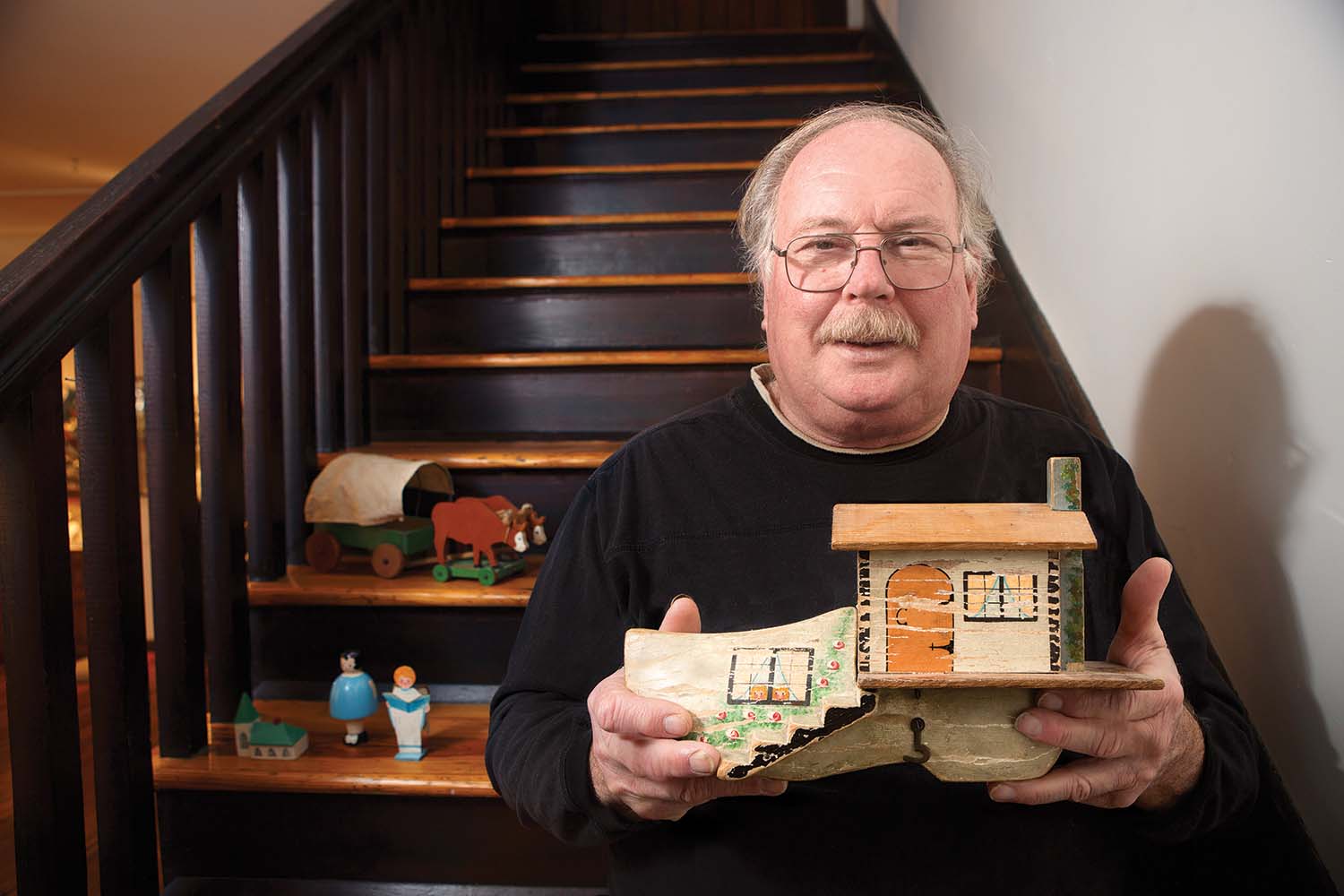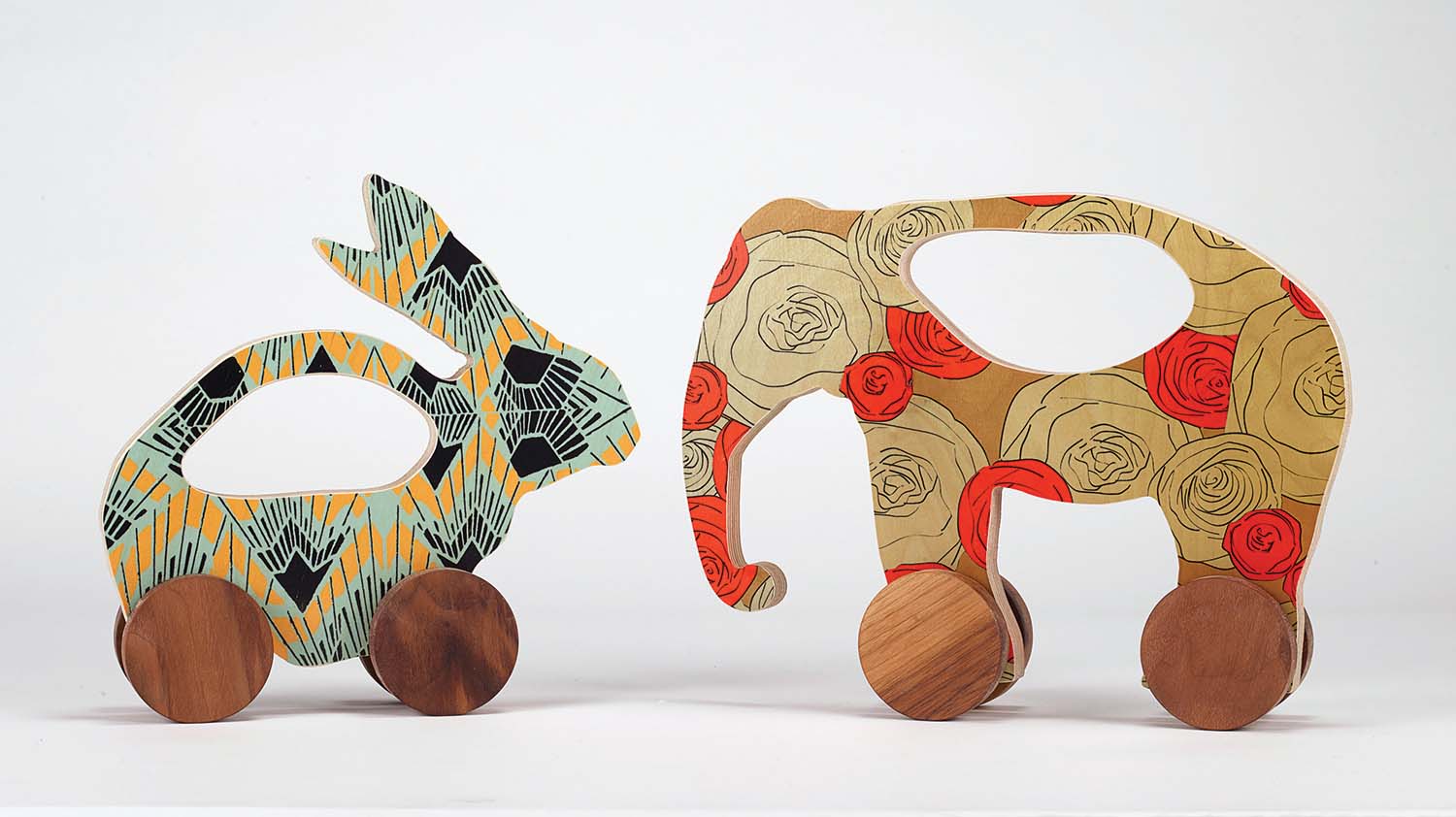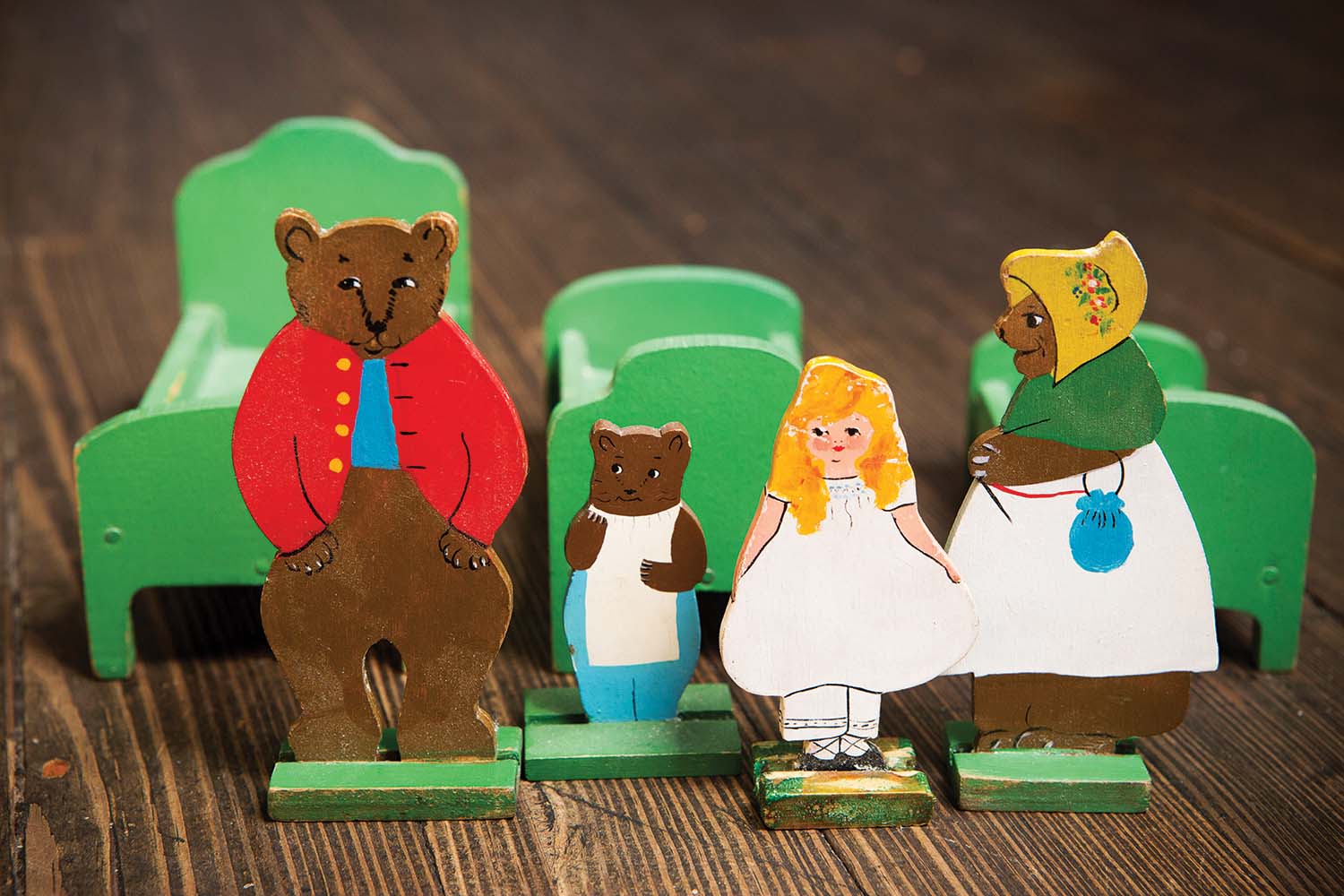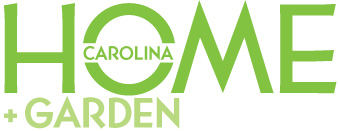
If Rick Dunn had to pick his favorite item among the 75 classics he’s collected, it would have to be the birdhouse. It was handmade from native pine in the mid-1930s by the Tryon Craft School, an apprentice offshoot of the famed Tryon Toy Makers and Wood-Carvers, and depicts St. Francis hand feeding the winged creatures.
“It’s the crown jewel of my collection,” Dunn says of the 16-inch-tall piece. “It’s in perfect condition, never used.” He found it on eBay and bought it from a woman in Pennsylvania who told him she’d rescued it from a trash pile. “She was very emotional about parting with it,” Dunn remembers. “She said it was like losing a child.”
Dunn, who’s in the construction business and has had a close relationship with wood for years, began collecting the work of the Tryon Toy Makers nearly 20 years ago, when he came across a serving tray fashioned out of a log in an antique store. It was stamped with the Tryon Toy Makers emblem. “That was the beginning,” he says.
The Toy Makers workshop was founded by Eleanor Vance and Charlotte Yale, who settled in Tryon in 1915. The two artists had moved to town from Asheville, where they’d set up Biltmore Industries with the help of the Vanderbilt family (the mission was to train and employ local workers, turning craft into a viable manufacturing endeavor). The building just off of Tryon’s Main Street that Vance and Yale eventually constructed to house their workshop and display its wares still stands, referred to by locals as the Toy House.

Dunn’s interest was further stimulated by local historian Michael McCue, who had extensively researched and written a monograph on the Toy Makers. “The heyday of the Toy Makers, in my opinion, was 1924,” Dunn says. “It was just before the Depression, when I think they were doing their finest work. It was a training ground for young people growing up in the mountains who back then didn’t have many opportunities. It gave them a skill they could earn a living with.”
The signature features of the Toy Makers workshop are the exquisite carving and modeling of the figures and their brilliant painted colors. They were “the Tiffany of toys,” according to McCue, and became so famous that Eleanor Roosevelt personally visited the workshop to buy gifts for the White House Christmas tree. The toys perfectly capture the storybook world of fairy tales and folklore and can trace their ancestry to the woodcarvers in the Alpine mountain valleys of Tyrol, a region bordering Italy and Austria.
The area was visited by another Tryon notable, children’s author/illustrator Margaret Morley, who was inspired to write Donkey John of the Toy Valley in 1938. (It’s likely that Eleanor Vance and Charlotte Yale were familiar at least with the book, if not personally acquainted with its author.)

The Toy Makers’ most famous creation was the whimsical four-wheeled toy horse, first produced in the early decades of the last century, which grew into Morris the Horse, Tryon’s official mascot, standing guard over the center of the equestrian town in various incarnations for nearly eight decades. Dunn’s collection also includes a Red Riding Hood, a Noah’s Ark, and a Mary with her lamb companion (all included in a holiday show at Asheville’s Grovewood Gallery in Grovewood Village, the former site of Biltmore Industries). But there are more utilitarian pieces in Dunn’s catalog, too, including a pair of stunning oak cabinets embellished with vines and grape leaves — honoring the area’s once-vibrant vineyards — produced by Tryon Craft School around 1920. “They belonged to the mayor of Detroit during that period,” Dunn reveals. “The fun for me is doing the provenance on each piece. You hear the most interesting stories.”
The Toy Makers changed hands several times before closing for good in the 1990s. But its rebirth is being nurtured by Julia Calhoun, one of the founders of the Tryon Historical Museum, who’s begun making reproductions faithful to original Toy Maker designs. “They’re beautifully done,” Dunn says. “She and her helpers do all the carving and painting, so in a way, they’re bringing the Toy Makers back to life.”
Craft in Toyland, featuring work by Julia Calhoun (among other makers) and pieces from Rick Dunn’s collection, shows at Grovewood Gallery in Asheville through December 31; see grovewood.com for more information. Also see examples from Dunn’s collection at the Tryon Historical Museum (26 Maple St. in Tryon, 828-859-0123). Michael McCue’s monograph “The Tryon Toy Makers and Wood Carvers 1915-1940” is published by Condar Press (condarpress.com).
